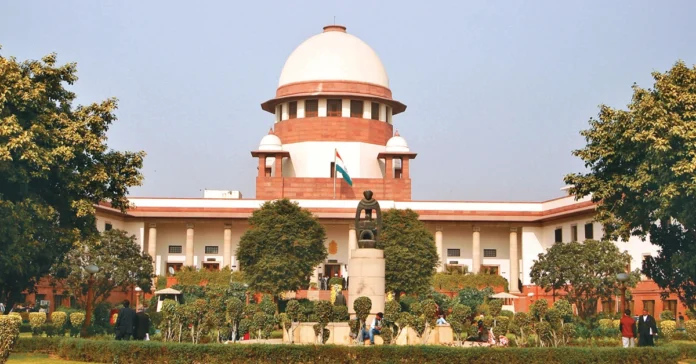The Supreme Court has held that foreign citizens cannot be granted the Indian citizenship under Section 8 (2) of the Citizenship Act, after their parents have renounced the same.
The Bench of Justice Abhay Oka and Justice Augustine George Masih ruled on Friday that when a person acquired a foreign citizenship, the cessation of Indian citizenship happened by operation of law by virtue of Section 9 of the Act.
Such cessation of citizenship could not be regarded as voluntary. Therefore, children of such persons cannot seek to resume Indian citizenship under Section 8(2) of the Citizenship Act, it added.
Section 8(2) of the Act says the children of persons who have voluntarily renounced Indian citizenship can seek Indian citizenship within one year of attaining majority.
Allowing an appeal filed by the Central government, the Bench set aside a Madras High Court judgement that allowed a Singaporean citizen by birth to resume Indian citizenship under Section 8(2) of the Citizenship Act 1955 on the ground that his parents had originally been Indian citizens before acquiring Singaporean citizenship.
The respondent had also claimed Indian citizenship under Article 8 of the Constitution.
The Bench ruled that this option was not available for children of those who acquired foreign citizenship.
A person born outside India after the commencement of the Constitution could not seek citizenship under Article 8 of the Constitution on the ground that his grandparents were born in the undivided India, noted the Bench.
Allowing such an interpretation would lead to ‘absurd’ results as foreign nationals born long after the independence, by claiming that their grandparents were born in the undivided India.
If Article 8 was intended to apply to a foreign national born after the commencement of the Constitution, the provision would not be referring to who was ordinarily residing in any country outside India so defined. So defined meant India as defined in the 1935 Act, as originally enacted. Moreover, Article 8 used the expression who was ordinarily residing, it added.
The top court of the country ruled that the provision would only apply to someone ordinarily residing on the date of commencement of the Constitution in any country outside India as defined in the 1935 Act, as originally enacted.


